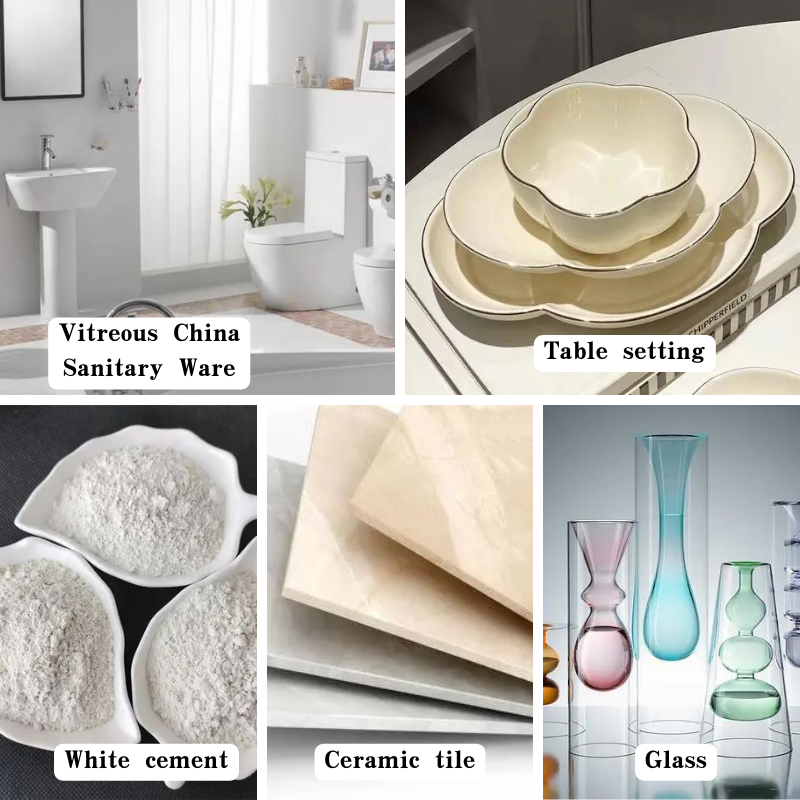
Natural Vermiculite Benefits and Uses for Sustainable Construction and Gardening
The Wonders of Natural Vermiculite Nature’s Miracle Mineral
Natural vermiculite is a unique and versatile mineral that has gained prominence in various industries due to its exceptional properties. Formed through the weathering of mica, vermiculite is a hydrated phyllosilicate mineral that expands significantly when heated. This expansion creates a lightweight, fire-resistant, and absorbent material, making it a valuable resource in numerous applications, including construction, agriculture, and horticulture.
One of the most fascinating aspects of natural vermiculite is its physical properties. When subjected to high temperatures, it can expand up to 30 times its original volume, transforming into worm-like particles. This expanded form is not only lightweight but also possesses excellent insulation properties, making it an ideal component in building materials. Vermiculite is commonly used in lightweight concrete, attics, and roof insulation, effectively reducing energy costs by keeping spaces cooler in the summer and warmer in the winter.
In the agricultural sector, natural vermiculite plays a crucial role in enhancing soil quality. Its ability to retain moisture and nutrients makes it a favorite among gardeners and farmers. When mixed with soil, vermiculite improves aeration and drainage, allowing plant roots to access essential nutrients and water more efficiently. This feature is particularly beneficial for succulent and tropical plants, which thrive in well-drained yet moisture-retentive environments. Furthermore, vermiculite is pH neutral, ensuring that it doesn’t alter the soil’s acidity levels, making it safe for a variety of crops and plants.
Natural vermiculite is also an excellent substrate for hydroponic systems. Its airy structure supports plant growth without the need for traditional soil. Hydroponics enthusiasts often choose vermiculite for its capacity to hold moisture while providing adequate aeration for the roots. This leads to faster growth rates and healthier plants, which is particularly advantageous for commercial growers looking to maximize yields.
natural vermiculite

Moreover, the fire-resistant properties of natural vermiculite make it an invaluable addition to various industrial applications
. It is commonly used in fireproofing coatings, as well as in the manufacturing of fire-resistant boards and panels. Vermiculite can help contain fires by delaying the spread of flames, providing critical time for occupants to evacuate and for firefighters to respond.In recent years, there has been an increased focus on the sustainable aspects of natural vermiculite. As a naturally occurring mineral, it is non-toxic and environmentally friendly. Its extraction and processing have a relatively low environmental impact compared to synthetic alternatives. As consumers and industries move towards greener products, natural vermiculite is viewed as a sustainable choice, aligning with eco-conscious principles.
However, it is important to address the health and safety concerns associated with vermiculite, particularly when it comes from certain sources. Some vermiculite deposits, notably those found in Libby, Montana, were contaminated with asbestos, leading to serious health issues. As a result, many countries have tightened regulations surrounding the sourcing and use of vermiculite. It’s essential for consumers to ensure they are using products made from safe, uncontaminated sources of natural vermiculite.
In conclusion, natural vermiculite is a remarkable mineral with a wide range of applications across various sectors. Its unique properties—such as lightweight nature, fire resistance, and moisture retention capabilities—make it an essential material in construction, agriculture, and horticulture. As industries continue to search for sustainable and eco-friendly materials, the significance of natural vermiculite is likely to grow. By understanding its benefits and ensuring safe sourcing, we can harness the full potential of this remarkable mineral while promoting a healthier planet.
Share
-
Premium Glass Sand Solutions | High Purity SupplyNewsAug.03,2025
-
Premium Talcum Powder Enhanced with GPT-4 Turbo | Soft & Long-LastingNewsAug.02,2025
-
Fly Ash Solutions Enhanced by GPT-4 Turbo | Sustainable InnovationNewsAug.01,2025
-
Natural Premium Bentonite Cat Litter - Superior ClumpingNewsJul.31,2025
-
Premium Resin Coated Sand - High Heat Resistance CastingNewsJul.31,2025
-
High Quality Silicon Carbide Grit for Abrasive ApplicationsNewsJul.30,2025






